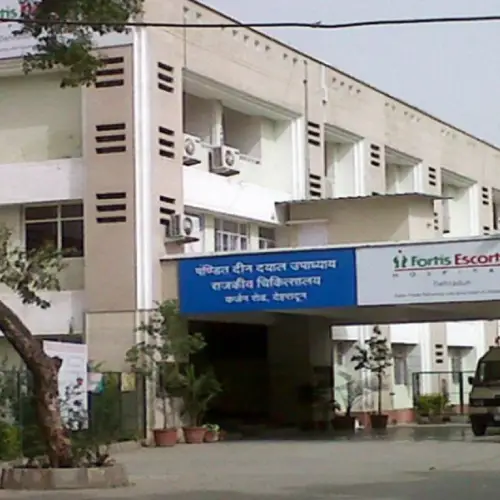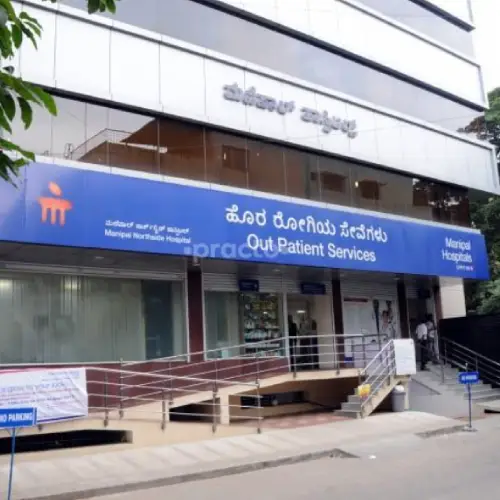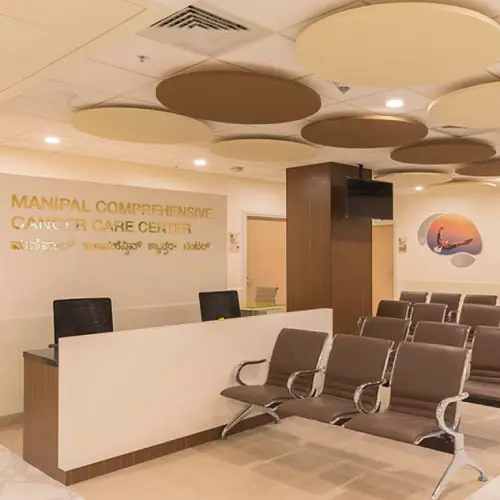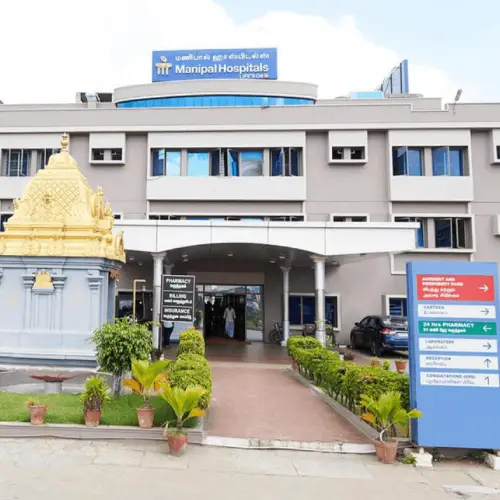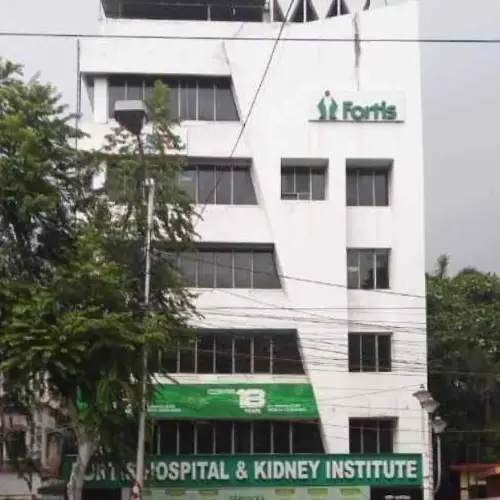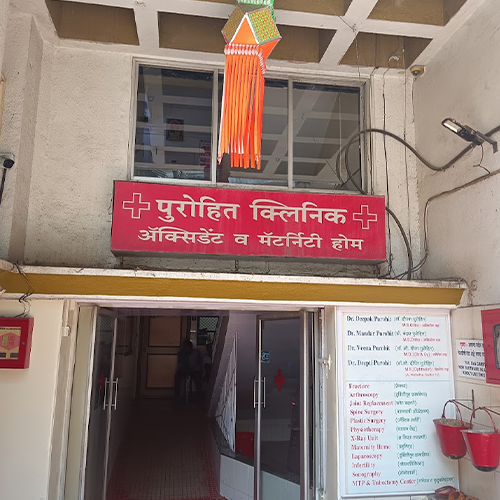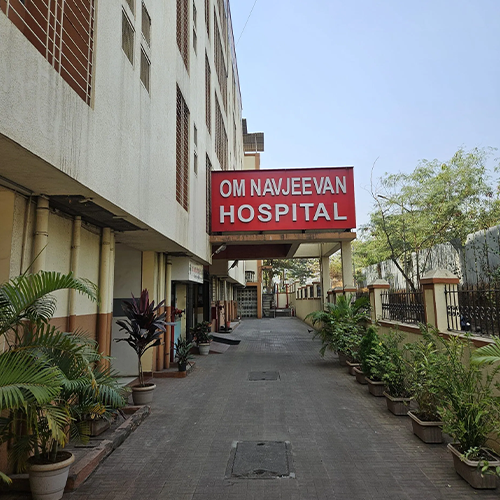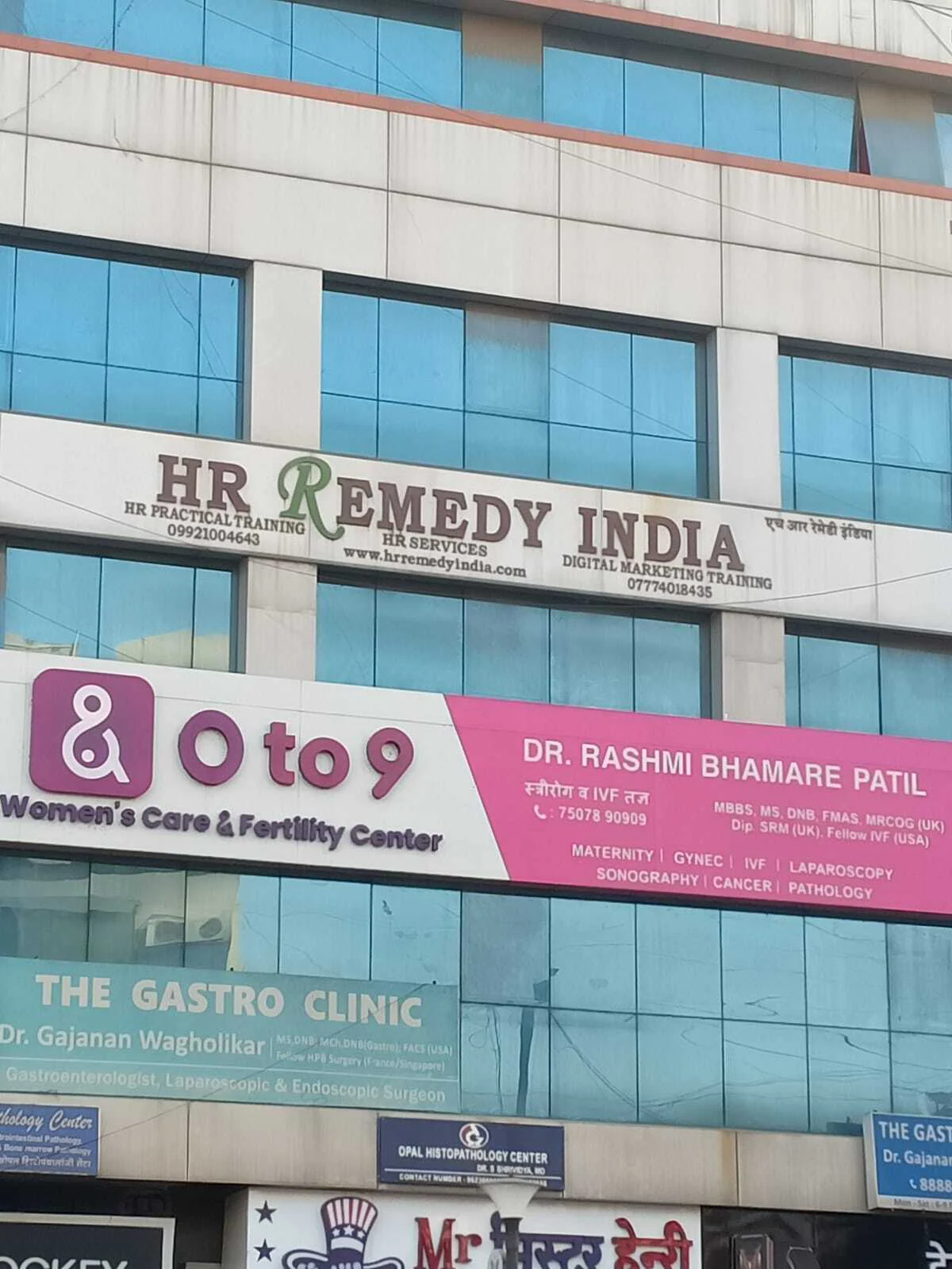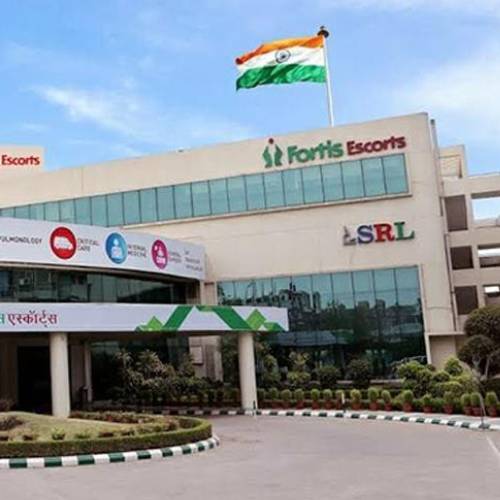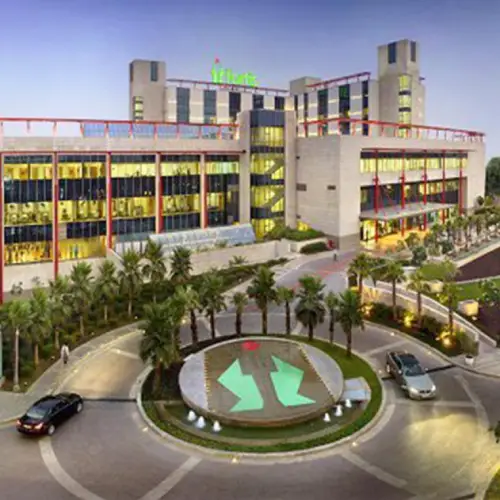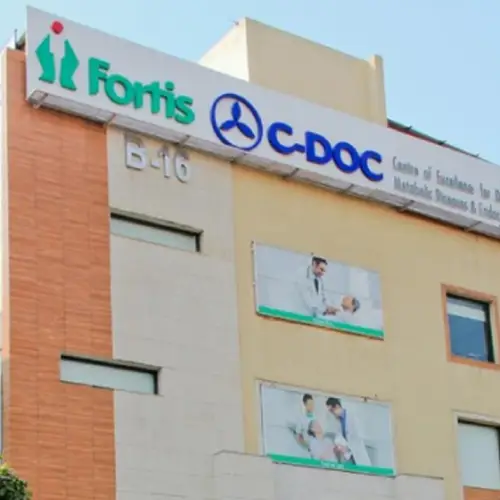Surgical Oncology
Surgical Oncology

Surgery has a long history as one of the earliest and most fundamental treatments for cancer. It serves multiple purposes in cancer care, including diagnosis, staging, and curative treatment. Surgical Oncology is a specialized field within oncology that focuses on the treatment of cancer through surgical procedures, specifically by removing cancerous tissues or tumors. Surgery is particularly effective when dealing with cancers that have not yet spread to other organs in the body.
In contemporary cancer care, surgery remains a pivotal component and is often the primary treatment choice for various cancer types. While it may not be the sole treatment, it is frequently the most effective approach. Surgeons aim to remove either the entire tumor or a portion of it, along with surrounding healthy tissue, to achieve a cure or alleviate symptoms
Functions Of Surgical Oncology
Surgical oncology is the medical specialty dedicated to the surgical management of malignant tumors. Its essential functions encompass:
1. Tumor Resection : Surgically removing the portion of the tumor, often referred to as debulking surgery, to reduce the tumor’s size or alleviate symptoms.
2. Wide Excisions: Removing the tumor along with adjacent affected body parts or tissues when necessary for complete removal and effective treatment.
3. Reconstruction: Reconstructing and restoring affected body parts or structures that may be altered or removed during the surgical treatment.
4. Diagnostic Procedures: Performing diagnostic procedures like biopsies or other methods to diagnose cancer and determine its stage.
The decision to employ cancer surgery is influenced by numerous factors, including the type of cancer, the tumor’s status (size and stage), its location, and the overall health of the patient. Surgery is often utilized in conjunction with other treatment modalities such as radiation therapy, chemotherapy, or hormone therapy. This multi-modal approach is frequently more effective in managing cancer and reducing the risk of recurrence compared to single-line therapy.
Treatment Done Using Surgical Oncology
Indeed, surgical oncology plays a critical role in the treatment of various cancer types and conditions. Some of the conditions that can be treated using surgical oncology include:
- Liver
- Stomach
- Thyroid
- Pancreas
- Melanoma
- Esophagus
- Parathyroid
- Breast cancer
- Adrenal Gland
- Rectum and Colon
- Endocrine Cancer
- Soft tissue sarcomas
- Head and neck cancers
- Gastrointestinal cancer
- Multiple Endocrine Neoplasia Types 1 and 2
- Neuroendocrine Tumors of the Gastrointestinal Tract
Procedure Of Surgical Oncology
Absolutely, surgical oncologists have a multifaceted role that extends beyond traditional surgical procedures. Their unique expertise encompasses the following:
1. Comprehensive Cancer Care: Surgical oncologists are highly trained to manage both straightforward and intricate cases of primary cancers (originating in one location) as well as secondary or metastatic cancers (those that have spread to other areas). This broad spectrum of expertise allows them to develop and execute comprehensive cancer treatment plans.
2. Cancer Biology: They possess an in-depth understanding of cancer biology, which is crucial for tailoring surgical approaches to the specific characteristics of each cancer type. This knowledge informs decisions about tumor resection, margins, and potential adjuvant therapies.
3. Imaging Technologies: Surgical oncologists are well-versed in utilizing advanced imaging technologies, such as MRI, CT scans, PET scans, and ultrasound, to accurately diagnose cancer, plan surgeries, and monitor treatment responses.
4. Multidisciplinary Collaboration: They work closely with other specialists, including medical oncologists, radiation oncologists, radiologists, pathologists, and nurses, to coordinate a multidisciplinary approach to cancer care. This collaboration ensures that patients receive a well-rounded treatment plan.
5. ntegration of Treatment Modalities : Surgical oncologists integrate surgical interventions with other cancer treatment modalities, such as radiation therapy, chemotherapy, targeted therapy, and immunotherapy, to optimize patient outcomes. They understand when and how to incorporate these treatments in a patient’s care journey.
6. Minimally Invasive Surgery : Many surgical oncologists are skilled in minimally invasive surgical techniques, such as laparoscopy and robotic-assisted surgery, which can lead to shorter recovery times and reduced postoperative discomfort for patients.
7. Research and Innovation : Some surgical oncologists are actively involved in cancer research, contributing to advancements in treatment options and surgical techniques. Their involvement in clinical trials and research projects enhances their ability to offer the latest evidence-based treatments to patients.
8. Patient-Centered Care : Surgical oncologists provide personalized care, taking into account each patient’s unique medical history, preferences, and goals. They help patients make informed decisions about their treatment options.
Overall, the role of a surgical oncologist extends beyond the operating room, encompassing a holistic approach to cancer care that considers the biological, clinical, and emotional aspects of the disease, with the ultimate goal of improving patient outcomes and quality of life.
Types Of Surgeries
There are different surgical procedures in the treatment of cancer. The types of procedures depended on the objectives of treatment. They include:
- Diagnostic Surgery
- Preventive Surgery
- Staging Surgery
- Curative Surgery
- Reconstructive Surgery
- Palliative Surgery
Diagnostic surgery, also known as diagnostic surgical procedure or surgical biopsy, is a medical procedure performed to obtain a tissue sample or examine the inside of the body for the purpose of diagnosing a medical condition, disease, or to determine the extent of a known condition. It is a critical step in the diagnostic process, particularly in cases where non-invasive diagnostic methods like imaging and lab tests are insufficient for a definitive diagnosis. Here are some key points about diagnostic surgery:
Preventive surgery, also known as prophylactic surgery, is a medical procedure performed to reduce the risk of developing a specific medical condition, often in individuals who have a high risk due to genetics, family history, or other factors. The primary goal of preventive surgery is to remove or reduce the risk of developing a particular disease or condition. Here are some key aspects of preventive surgery:
Staging surgery, also known as surgical staging, is a medical procedure used to determine the extent and severity of a disease, particularly cancer, and to establish its stage. The stage of cancer is a crucial factor in treatment planning and prognosis. Staging surgery involves the surgical exploration and assessment of the primary tumor and nearby tissues or lymph nodes to determine the extent of cancer spread. Here are some key aspects of staging surgery
Curative surgery is a type of surgical procedure performed with the primary goal of completely removing or eradicating a localized disease or condition from the body. This surgical intervention aims to cure the patient of the underlying disease, and it is typically employed when the disease is localized and has not spread to other parts of the body. Here are some key points about curative surgery
Reconstructive surgery is a specialized surgical field that focuses on restoring the appearance and function of body structures that have been affected by injury, disease, congenital conditions, or prior surgical procedures. This type of surgery is often performed to improve the patient's quality of life, physical function, and overall well-being. Here are some key points about reconstructive surgery
Palliative surgery, also known as palliative care surgery, is a branch of medicine that focuses on providing relief from the symptoms and suffering associated with serious illnesses, particularly advanced-stage cancers and other life-limiting conditions. The primary goal of palliative surgery is to improve the patient's quality of life by managing pain, addressing symptoms, and enhancing comfort when curative treatment options are limited or no longer effective. Here are some key aspects of palliative surgery
Best Hospital And Cities For Surgical Oncology In India
- Aster Medcity, Kochi
- HCG Manavata, Nashik
- Kokilaben Ambani Hospital
- Fortis BG Road, Bengaluru
- Fortis Hospital, Vadapalani
- Fortis C-DOC, Chirag Enclave
- Manipal Hospital, Whitefield
- Fortis La Femme, Greater Kailash
- Manipal Hospital, Old Airport Road
- BKL Superspeciality Hospital, New Delhi
- Fortis Escorts Heart Institute, Okhla Road
FAQs
Yes, there are significant differences between surgical oncology and general surgery, even though both fields involve surgical procedures. Here are some key distinctions:
1. Focus of Practice:
– **Surgical Oncology**: Surgical oncologists are highly specialized surgeons who exclusively focus on the treatment of cancer. They are experts in diagnosing and surgically managing various cancer types. Their practice revolves around cancer surgery, including tumor removal, lymph node dissection, and complex procedures related to cancer treatment.
– **General Surgery**: General surgeons have a broader scope of practice that includes various surgical procedures, not limited to cancer. They deal with a wide range of conditions, including gastrointestinal issues, hernias, gallbladder diseases, appendicitis, and more. General surgeons perform surgeries on different body systems.
2. Training and Expertise:
– **Surgical Oncologists**: These surgeons undergo extensive training in oncology, focusing on the diagnosis and surgical treatment of cancer. They typically complete fellowships in surgical oncology after their general surgery residency to gain specialized knowledge and experience in cancer surgery.
– General Surgeons: General surgeons complete a residency in general surgery, which covers a diverse range of surgical procedures. While they may have experience with cancer surgery, they are not specialized exclusively in oncology.
3. Patient Population:
– Surgical Oncologists: They primarily treat patients with cancer. Their expertise lies in managing cancer cases, determining the extent of cancer (staging), and developing comprehensive treatment plans that may include surgery, chemotherapy, radiation therapy, and other cancer-specific therapies.
– General Surgeons: General surgeons treat a broad patient population with various surgical needs, not limited to cancer. They perform surgeries for a wide array of medical conditions, both elective and emergency, across different age groups.
4. Treatment Approach:
– Surgical Oncologists: Their focus is on cancer treatment and may collaborate closely with medical oncologists, radiation oncologists, and other specialists to provide comprehensive cancer care. They often perform cancer-related surgeries with the intent of achieving a cure or long-term disease control.
– General Surgeons: Their treatment approach is more general in nature, addressing a wide range of surgical needs. While they may perform cancer surgeries, they handle various surgical cases that may not necessarily involve cancer.
In summary, the primary difference between surgical oncology and general surgery lies in their areas of specialization and focus of practice. Surgical oncologists are highly specialized in cancer diagnosis and treatment, whereas general surgeons have a broader practice that encompasses a wide spectrum of surgical procedures beyond cancer care.
The effectiveness of treating cancer with surgery varies widely and depends on several factors, including the type and stage of cancer, the patient’s overall health, and the skill of the surgical team. Here are some key points regarding the effectiveness of cancer treatment with surgery
Anesthesia is typically necessary in surgical oncology, as it is in most surgical procedures. Surgical oncologists perform a wide range of surgeries to diagnose, stage, and treat cancer, and anesthesia is essential to ensure that the patient remains pain-free and immobile during the surgery. Here are some key points about anesthesia in surgical oncology:
1. **Pain Management**: Anesthesia is administered to prevent the patient from feeling pain during the surgery. Cancer surgeries can involve complex and invasive procedures, and it’s crucial to keep the patient comfortable and pain-free throughout the operation.
2. **Immobilization**: Anesthesia also induces a state of muscle relaxation and unconsciousness, allowing the surgical team to perform the procedure with precision and without the patient’s movement or response to pain.
3. **Different Types of Anesthesia**: There are various types of anesthesia used in surgical oncology, depending on the nature of the surgery and the patient’s medical condition. These include:
– **General Anesthesia**: This renders the patient completely unconscious and unaware of the surgery. It is commonly used for major cancer surgeries.
– **Regional Anesthesia**: This numbs a specific region of the body and may be used for procedures involving a specific area affected by cancer.
– **Local Anesthesia**: It numbs a small area of the body and is typically used for minor procedures, such as skin biopsies.
4. **Safety**: Anesthesia is administered and monitored by an anesthesia team, including an anesthesiologist or nurse anesthetist, to ensure the patient’s safety throughout the surgery.
5. **Individualized Approach**: The choice of anesthesia and the specific technique used are tailored to each patient’s medical history, the type of surgery, and their overall health.
6. **Postoperative Care**: Anesthesia care extends into the postoperative period, as patients are closely monitored as they wake up from anesthesia. Pain management and any potential side effects or complications related to anesthesia are addressed during this time.
In summary, anesthesia is a crucial component of surgical oncology procedures, as it ensures patient comfort, safety, and immobility during surgery. The type and approach to anesthesia are
Yes, like any medical procedure, cancer surgery carries certain risks and potential complications. The specific risks associated with surgery can vary depending on the type of surgery, the location of the tumor, the patient’s overall health, and other factors. It’s important for patients to discuss these risks with their surgical oncologist and medical team before undergoing surgery. Here are some common risks and complications associated with cancer surgery
Seeking a second opinion for cancer surgery can be an important and valuable step in the decision-making process, and it is encouraged in many cases. Here are some reasons why obtaining a second opinion for cancer surgery can be beneficial:
1. Confirmation of Diagnosis: A second opinion can help confirm the accuracy of the initial cancer diagnosis. Ensuring that the diagnosis is correct is critical because different cancer types may require different treatment approaches.
2. Exploration of Treatment Options: Different healthcare institutions and specialists may offer different treatment options or surgical approaches for the same type and stage of cancer. A second opinion can provide insight into alternative treatments, potential clinical trials, or innovative surgical techniques.
3. Understanding Risks and Benefits: Getting a second opinion can help you better understand the potential risks and benefits associated with a specific surgical procedure. It can also help you assess whether the proposed surgery is the most suitable option for your individual circumstances.
4. Peace of Mind: Seeking a second opinion can provide peace of mind and help alleviate any doubts or concerns about the recommended treatment plan. It can empower you to make an informed decision about your healthcare.
5. Access to Specialized Expertise: Different medical centers may have specialists with unique expertise in specific types of cancer or surgical techniques. A second opinion can connect you with such specialists who may offer specialized insights and treatments.
6. Treatment Confidence: A second opinion can increase your confidence in the recommended treatment plan, which can positively impact your overall outlook and engagement in your healthcare.
7. Insurance Coverage: In some cases, insurance providers may require a second opinion before approving certain treatments or surgeries. Checking with your insurance company about coverage requirements is advisable.
8. Patient Advocacy: Seeking a second opinion can be seen as a proactive form of patient advocacy. It allows you to actively participate in your healthcare decisions and ensure that your treatment plan aligns with your goals and values.
It’s important to communicate openly with your primary healthcare provider and let them know that you
A relapse or recurrence of cancer can occur after lumpectomy or organ preservation surgery, just as it can after other cancer treatments. Lumpectomy is a surgical procedure commonly used for the treatment of breast cancer, where only the tumor and a margin of surrounding healthy tissue are removed, preserving the majority of the breast. While this procedure can effectively treat many early-stage breast cancers, it is not without the risk of cancer recurrence. Here are some factors to consider regarding relapse after lumpectomy or organ preservation surgery
The decision to have chemotherapy or radiation therapy in addition to surgery for cancer treatment depends on several factors, including the type and stage of cancer, the extent of the disease, the characteristics of the tumor, and the individual patient’s overall health. Here are some considerations regarding the use of chemotherapy and radiation therapy in conjunction with surgery
Dietary restrictions before endoscopic procedures can vary depending on the specific procedure and your healthcare provider’s instructions. However, there are some general guidelines that are often recommended to prepare for endoscopy. It’s essential to follow your healthcare provider’s instructions closely, as they may provide specific recommendations tailored to your individual case. Here are some common dietary restrictions and guidelines for endoscopic procedures
Best Hospitals for Orthopaedic Surgical Oncology in India
Fill this form to get a free quote from best hospitals in India


At MediTours India, we stand as a distinguished leader in the realm of medical tourism, dedicated to transforming your healthcare journey into a seamless and transformative experience. With a commitment to excellence and a focus on your well-being, we pave the way for a new era of medical travel.
Contact Us
Address : C603 Jalaram Park LBS Road. Bhandup West Mumbai -400078 Phone : +91 9820344697 Email : ajit@meditoursindia.in
Copyright by indiameditours 2023. All rights reserved.
